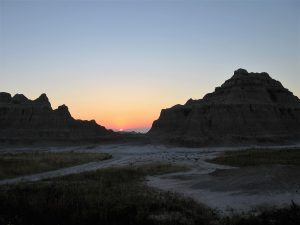Ephesians 2:11-18
He came and preached peace to you who were far away and peace to those who were near. For through him we both have access to the Father by one Spirit (2:17-18 NIV).
Let’s look deeper at this reconciliation. God in Christ formed a new people of God. In the past, this aspect of reconciliation was underemphasized. This severely hurt the church when it needed this truth the most in a changing world. The church had an opportunity to demonstrate that she is God’s new society, but she wandered far into the swamp of worldliness. This happened at least twice in America, especially in the 1840s-1860s and the 1940s-1960s.
On the cross Christ accomplished the final fulfillment of the law, meaning the law covenant given at Sinai, and so he abolished it and its commandments and regulations (cf. Romans 6:14; 7:6; 10:4; 2 Corinthians 3:4-16; Galatians 3:19-25; Colossians 2:14; Hebrews 7:18; 8:6-13; 9:1, 10; 10:1-10). Christ satisfied all the demands of the law for his people, and so we are legally free from it. We do not and cannot achieve a righteous way of life by putting ourselves under the law.
At the same time, the Lord created a new man or a new humanity in himself out of former Jews and Gentiles, reconciling both to God in his one body through the cross. Here is an important aspect of the power of the cross: the creation of a new people of God (cf. Ephesians 3:6).
What is the outcome of this reconciliation that makes us Christ’s new people?
- We share his peace (2:17). Christ’s peace not only means the absence of hostility, but also the presence of great spiritual blessings. We belong to God. We are adult sons and daughters of God; we are free! We have the Holy Spirit of God, who keeps us, fills us, empowers us, transforms us, assures us, and makes Christ’s presence known to us.
- We have access to God (2:18). This means “that the relationship is restored, that friendly relationship with God whereby we are acceptable to Him and have assurance that he is well disposed towards us” (Lloyd-Jones). Here is the beauty of worship in the gospel. You and I can boldly share fellowship with the Holy, Almighty, Sovereign God, as the Holy Spirit makes real to us the presence of the risen, ascended Christ to us.
- We together form a holy temple in the Lord in which God lives by his Spirit (2:19-22). We are “home”, God’s home. In a practical sense for you and me, eternal joy, peace, and glory begins in your gathering of believers in the Lord Jesus Christ. Yes, it does for believers in Jesus. But you can only realize it by faith. We must by faith in Jesus see one another in him.
Have you ever arrived for a gathering of your physical, extended family exhausted from a long ride in a car in the driving rain? You are weary, and you get drenched on your way into the house. You want to be there, but you feel out of sorts. But you get in the house, and your family welcomes you, takes your wet jacket, leads you over to the fire to get warm, and brings you a soothing drink to refresh your spirit. And you say, “Ah, it feels so good to be home.”
This is what I want you to understand and live. Since God has reconciled us to him through the power of the cross of Christ, we’re in God’s home. Here is peace, beauty, joy, and glory begun, if you will grasp this through faith in Christ. A church is not a place you go to that has nice buildings and exciting, glitzy programs. A church is the people of Christ, whom he has reconciled to the Father by the power of his cross. You can feel at home among Christ’s new covenant people. You ought to feel at home with them! Are you reconciled to God?
Grace and peace, David


 Ruth 4:13-22
Ruth 4:13-22